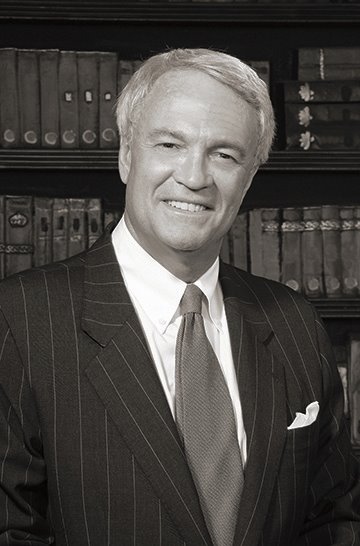In his early years on Wall Street, David Hunter developed an expertise in energy investing and was an early financier to invest in wind power. As vice president at Warburg Paribas Becker, he helped provide early funding of the self-storage industry. He was responsible for raising capital that built the World Trade Center Hotel in New York City.
As a managing director at Kidder Peabody, he led efforts that funded wind-energy parks, hydroelectric facilities and electricity generation facilities. He was also a managing director at Equitable Capital, where he helped structure and finance Venture Capital Fund of America. After completing his Wall Street experience, Hunter worked as a senior strategic adviser for Rockefeller & Co. He later founded Resolute Wealth Management in Providence.
PBN: We are seeing imposition of tariffs by the U.S. and increasing chance of trade wars, even among our historic allies. How does the possibility of looming trade wars affect the local economy and consumers?
HUNTER: Companies that would be most exposed to the newly enacted tariffs on steel and aluminum would be the large-scale commercial building contractors, road and bridge builders, and marine/defense contractors. Some of these companies could have contractual provisions that would allow them to pass some of the incremental costs on, but the labor expense costs could be curtailed through job shrinkage [layoffs].
It is also likely Rhode Island … and Massachusetts … might have to compete with out-of-state companies with a lower cost of labor. Trade wars are usually quite ugly and produce more losers than winners.
PBN: A federal judge recently allowed AT&T’s takeover of Time Warner to proceed. What is your view of this gigantic merger, and possibly more to come?
HUNTER: The outdated arguments made by the Justice Department were trapped in the thinking of the 1980s. Technology advances are making cable assets dinosaurs as I write this. The loud clicking sound you hear every day during what we used to call “customary viewing hours” is people disconnecting from cable. The traditional barriers that allowed the media and entertainment companies to become the monopolies of the past are pursuing mergers today, and are doing so to slow their demise. Costs, if anything, should come down for the consumer. I think the only folks that should worry are Google and Facebook, who own approximately two-thirds of the online advertising market, and might have some severe competition.
PBN: Unemployment is down and the “gig” sector of [the] independent or contract worker is going strong. How might the gig sector – [such as] Lyft drivers or the self-made hoteliers of Airbnb – roil traditional industries, from cabbies to the hotels and beyond?
HUNTER: The new business entrants such as Lyft and Airbnb challenge the traditional providers in the cab and hotel industry. Initially, consumers have experienced a meaningful drop in costs, which has promoted more users and has created more “providers.”
The establishment (hotels, motel providers) has argued that the new providers aren’t providing the same quality of experience and safeguards. I think there is enough evidence to suggest that a new market segment is evolving to owner providers who are offering a more homelike experience for travelers with a price point that promotes more traffic.
PBN: How should independent workers and employed people generally be preparing for financial stability in later life and in retirement? What should business owners be doing?
HUNTER: Independent workers and all types of self-employed workers really need a plan that accurately accounts for their annual spending and a good estimate on longevity. The latter is a tough estimate to make, so be conservative in your assumptions.
Put away enough each pay period with a conservative estimate on the earnings that, when combined, will meet your future needs with a cushion of capital exceeding your needs. A little bit more than your needs is better than a little bit less.
PBN: As popularity in renewable-energy grows, more U.S. companies are investing in wind energy. How are companies benefiting, and what do you see for the future of wind energy?
HUNTER: When asked about the prospects for wind-powered energy, I’ve always given an enthusiastic thumbs-up. My position comes from actual work I did in the early 1980s while on Wall Street. The interest in wind and other sources of alternative power began to build rapidly after several dramatic energy shocks were delivered to the U.S. and other large energy-consuming nations in the mid-’70s. The U.S. in response established [a] series of energy tax credits that could be earned by developers who could provide reliable sources of alternative power generation.
Wind was one of [the] sources [with] great appeal. The reasons were numerous: it was free; clean; perpetual; the U.S. has many favorable development sites, and wind technology was already being successfully employed in other countries. The early wind parks surfaced the issues that had to be resolved before wind turbine-based energy would become mainstream.
Turbine noise was solved easily by engineering design and placement relative to communities. Damage and death to bird flocks had to be overcome as well. Better engineering and placement of the towers and turbines has brought the bird loss to acceptable limits. There is no doubt in my mind that wind and solar will become a major factor in U.S. electricity output.
Mary Lhowe is a PBN contributing writer.













